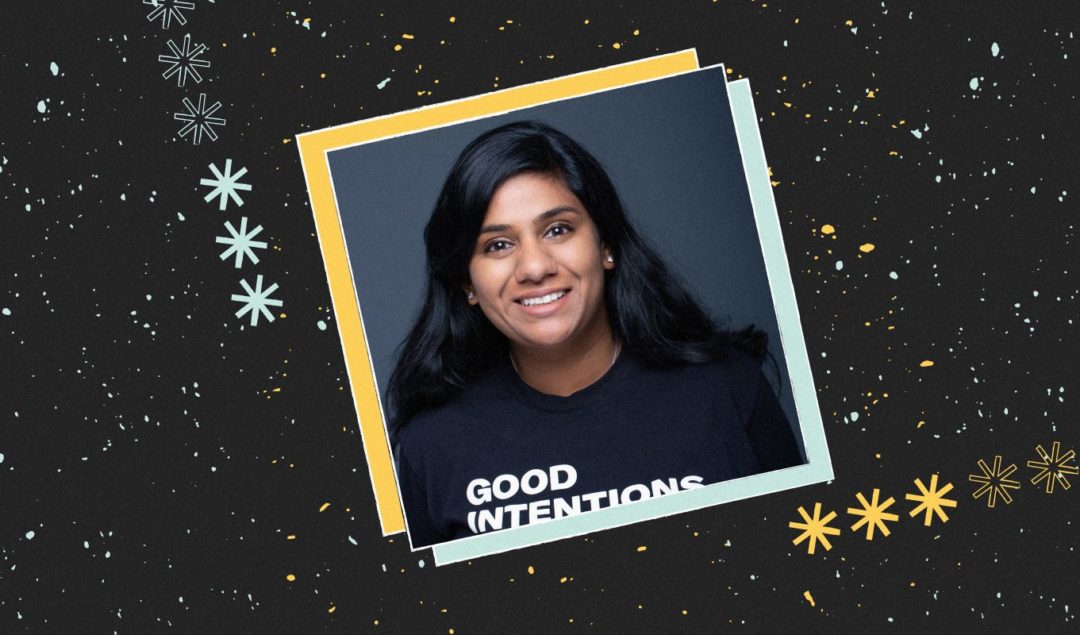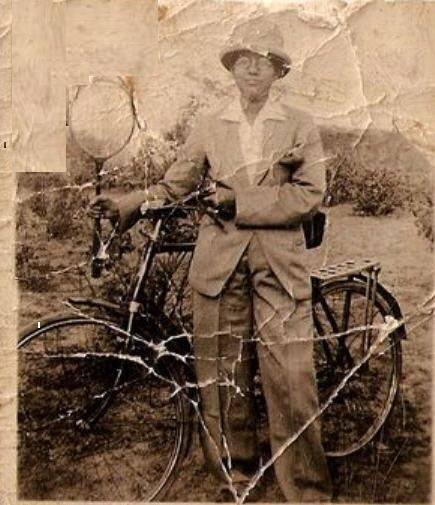Becoming A Bad-Ass Engineering Leader: 5 Tried & True Lessons From A Woman of Color

Abstract.com VP of Engineering, Rukmini Reddy, shares the pivotal events that helped shape her path and underpin her leadership philosophy. Originally published here.
Yes, I said bad-ass. I went from being just another Indian school girl being taught in a convent, to being a VP of Engineering for three incredible companies in Silicon Valley. While having twin boys who are now 5. So, yeah. I lean into my badassery because I have worked very hard for it.
Courage is one of my core values. But it wasn’t always that way. I struggled with imposter syndrome when I started out as the only woman — let alone a brown, immigrant woman — of 20 engineers. It was hard when they held their breath during group assignments, hoping that they wouldn’t be paired with me to code. I had to contribute 1.5x more code than my male peers just to have a seat at the table. When I had men looking over my shoulder, passive-aggressively checking my code, I pulled up a chair and welcomed them to actively watch while I out-performed every single one of them. In just five years, I went from being an individual contributor to a VP of Engineering. And I’m proud of that work.
I have learned a lot along the way and I am proud of the brown, female engineering leader that I have become. For anyone who feels different or marginalized, but still wants to build a meaningful engineering career — or any innovative career — here are five lessons that helped shape my path and now underpin my leadership philosophy.
Fear and courage go together
Complex, creative, innovative work demands that you step outside of the known world. I first experienced this when I was 21 years old and was accepted to study computer science in the United States. I was clutching my plane ticket, bawling at the thought of leaving my entire family— the safety of everything I’d ever known — and coming to America. I was about to tear that ticket to pieces when my treasured grandmother, AmmaAmma pulled me aside. This is the woman who literally wore “the pants” in India in 1930 (here’s a photo to prove it):
She said, “Rukmini, if you don’t get on that plane, you will spend the rest of your life wondering what could have been. Go get on that plane.”
I was terrified, but I mustered the courage to step onto the plane and into the unknown. And that prepared me to walk through all of the unknowns I would experience on my path toward leadership. It’s helped me think differently about problems when other engineers were afraid to take risks or make hard decisions. And it’s helped me step into new areas of growth, even when it’s new and scary. Leadership is about making choices when the waters are murky and it’s about modeling how to make tough choices so your team has the courage to do the same.
Am I fearless? No. But have I let fear stop me from moving forward? Hell, no. Courage isn’t about lacking fear. Fear is exactly what makes courage, well, courageous. It’s saying, “Yes, I can” when you’re in uncharted territory. That’s the vulnerability that makes courage so remarkable.
Build your squad
Creative leaders take risks. They are the harbingers for change, whether through art, culture, politics, or engineering. But leaders don’t go at it alone. They have the support of a select group who form a troop of support: a safe place to try new things, fail miserably and learn. If you’re starting out in your career, your squad might be people who are entry-level at different companies or people who identify the same way you do. You may also seek out a mentor who can help advise you on how to grow strategically in your field.
As you progress into leadership, it’s your job to build your team into a squad of people who have each other’s backs. You do this by being fair and data-driven, judging people on their actual performance. You do this by investing in your relationships with people, by caring about them in a genuine, consistent way. I call my people. I spend time with them. I learn what they are struggling with and help them solve their problems. I have their back, and they have mine. We give each other the space to fail and time to learn. Then we go and do it again. That’s how we build amazing things: together.
Personally, I found my greatest squad member in my partner, Shravan. He is also an engineering leader, managing a huge team, but he supports our family every day. He takes the morning shift with our twin boys and picks up the coffee I forgot for Teacher Appreciation Day. We share lessons we are learning in our careers, in our friendships, and as parents. Our partnership has made our respective success possible. Find your people. Hold them close.
Candor is not criticism
If you’re going to make it in any male-driven industry, you have to learn the difference between feedback that is meant to keep you in your place (criticism) and feedback that is meant to help you grow (candor).
We see trolling a lot in online culture and, sadly, sometimes that permeates into many engineering cultures. When you start taking chances and creating really groundbreaking work, there are going to be people who criticize you. A lot of them, actually. That’s because it’s easier to criticize work than it is to actually create it. It’s going to remind others of times when they settled or didn’t fully express themselves. When you add gender or racial dynamics to this, it can become really challenging. When women speak their minds, advocate for their work, or challenge their male peers, some men find it very difficult and threatening. A former male colleague told me he hated me. Men have second-guessed my decisions publicly. This is the reality and it sucks.
But if you absorb that negativity, you will lose your power, your motivation, and your spark. I’ve thrived by identifying the critics who don’t matter and managing the impact they — and their opinions — have on me and my decisions. It’s a “don’t feed the trolls” mantra that helps me stay focused on the work I’m doing and the impact I’m making. This doesn’t mean that I don’t accept or want feedback, but I offer (and expect) feedback that is rooted in genuine care and honesty: radical candor. But there is an ocean of difference between criticism and candor and knowing the difference will help you focus on what’s most important.
Know who you are; live full-out
I started studying computer science in Arkansas and many of the locals had never seen an Indian person. It was 2003 and there was a lot of tension about the Iraq War, so people wanted to know what kind of brown person I was. I heard questions like, “India? Is that even a country? Do you even have food there?” I started to notice other Indian students clustering together, trying to avoid these uncomfortable interactions. I’m proud of who I am and where I come from. And I believe that the best way to tackle stereotypes and fear is through human connection. So, I created a cultural exchange program to teach elementary students in Arkansas about cultures from around the world — including India. International people got to share their food, their heritage, their music, and their language with students who would now be part of a more culturally open community in Fayetteville.
This lesson traveled with me when I began working as an engineer. I was questioned because of my age. I was questioned because of my gender. I was questioned because I leveraged my courage to make hard calls in tough situations. And every time I’m confronted with discrimination, I look it straight in the eye and I choose to go full-out. I know exactly who I am. The more comfortable I am with that person, the more self-assured I feel and the more successful I become. I have proven myself over and over again (as I’m sure you have) so I trust myself. So should you.
As women, the realization that we don’t owe anyone anything is hugely powerful because it shifts us from being seen as a caretaker to being an equal member of the team. This helps us focus on our own growth and excel the way we should. This doesn’t mean I’m perfect — far from it. But I believe that failure is a completely acceptable intermediate step for me so leave myself room for failure, learning, and growth. If you step into this mindset, just remember that you don’t owe anyone anything. Know who you are and take pride in that, mistakes and all. Live your life full-out.
Dream, and work really hard
I have wanted to be an engineer since the 3rd grade. When I was given the option to swap needlepoint for time in the computer lab, I literally jumped out of my chair. I’ll take Logo, Pascal, Fortran, and Basic over sewing buttons any day of the week. But I worked for it. I put in long hours working at the computer lab and teaching myself to code. I noticed that the harder I work, the more opportunities opened up for me. My career has blossomed and I now get to lead a team of world-class engineers and build amazing tools that help designers build better products.
But it wasn’t without its struggles. I had to combat a boys’ club mentality. One of them even raised his hand as if to hit me and wasn’t fired because he was too important for the company to lose. Despite all of these hurdles, being an engineering leader has always been my dream and no one was going to stand in my way. And now that I’m here, I get to make the call to run a data-driven organization. Although we have our own biases, data by itself does not. If we are transparent and utilize data responsibly, it can help us combat gender or race discrimination. It can hold us accountable for being fair. I use data to measure and reward our teams’ performance. It also helps me remain crystal clear about their career path and development goals.
It’s such a privilege to be able to make these calls and build an engineering culture that I’m proud of. And I’m grateful every day. I’m grateful that my twin boys are growing up to see a woman — a mother — as an archetype for what engineering leaders look like. And, as I look at the women of all disciplines asking for more and standing their ground, I know I’m not the only one. Dream big! It’ll be hard work, but it’s absolutely worth it.
Ready to tap into your bad-assery?
The road may feel challenging, but you are not alone. Find your courage. Find your people. Let criticism go. Be yourself and go for it. It will be hard, but you’ve got this. If you want to connect with me, you can reach me on LinkedIn.





